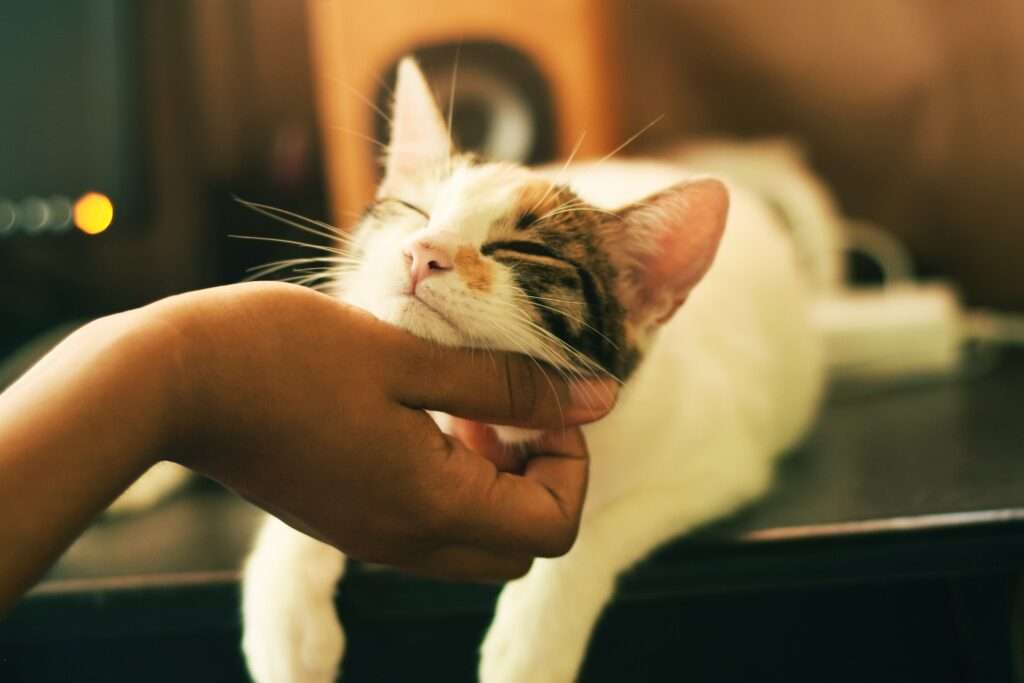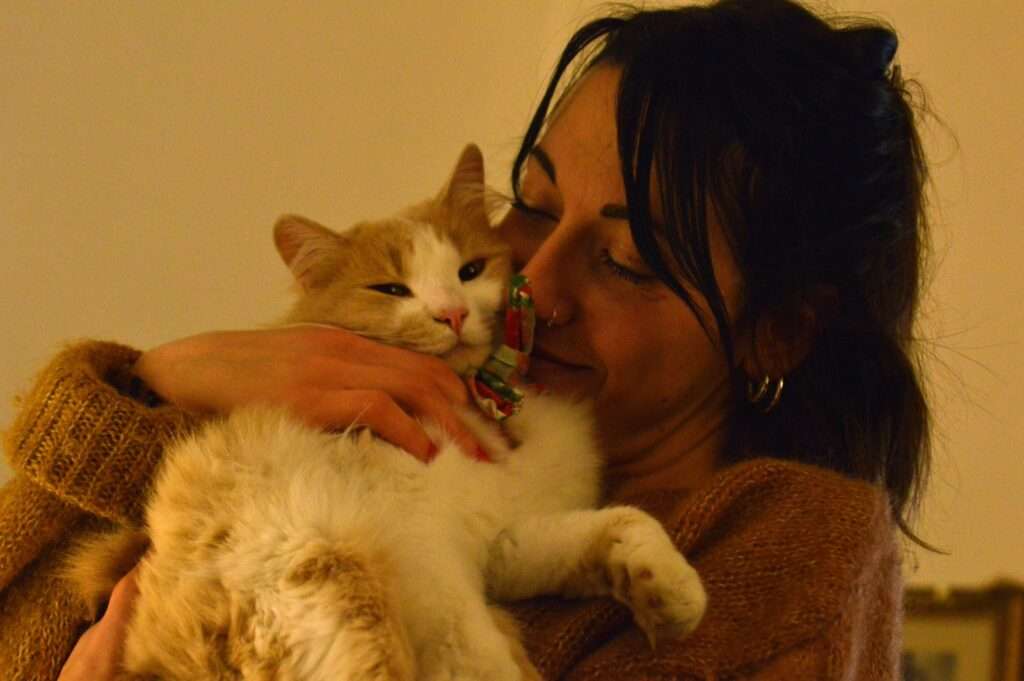Do Cats Know When You Are Sad? A Deep Look into Feline Behavior
Cats are sometimes viewed as distant animals, but they can surprise us with their ability to detect and respond to our emotions. Have you ever felt down, only to find your feline friend snuggled up next to you, offering comfort?
It’s not just a coincidence. Cats have a remarkable sense of smell and empathy, which allows them to sense when their owners are sad. In this article, we’ll explore the scientific evidence behind cats’ abilities and the signs that indicate that your cat can sense when you’re feeling blue.
The Science Behind Cats’ Sense of Smell and Empathy
Cats have an incredible sense of smell, which they use for hunting, identifying prey, and navigating their surroundings. However, did you know that cats can also use their sense of smell to detect human emotions?
Studies have shown that cats can pick up on changes in their owners’ body chemistry that occur when they’re sad or anxious. Additionally, cats have a highly developed vomeronasal organ, also known as the Jacobson’s organ, which enables them to detect pheromones and other chemical signals that humans cannot perceive.
But it’s not just their sense of smell that makes cats sensitive to our emotions. Cats are also highly empathetic animals, capable of sensing our moods and reacting to them. One study found that cats imitate the facial expressions of their owners when they’re upset, indicating that they have a deep understanding of human emotions.
Given their exceptional sense of smell and natural empathy, it’s no surprise that cats can detect when their owners are sad. But how do they express this understanding? Continue reading to find out.
Signs That Your Cat Can Sense When You’re Sad
Now that we know cats can sense human emotions, how can we determine if our furry friends are detecting our sadness? Here are a few signs to look out for:
- Increased Affection: If your cat becomes more affectionate than usual, it could be a sign that they’re trying to comfort you.
- Following You Around: While cats are independent creatures, if your cat starts following you from room to room, it may indicate that they’re worried about you.
- Kneading: Kneading, or “making biscuits,” is a sign of contentment in cats. However, it can also be a way for cats to soothe themselves and their owners when they’re feeling anxious or stressed.
- Purring: Cats purr when they’re happy, but did you know they also purr when they’re in pain or anxious? Some experts believe that cats may use their purr as a self-soothing mechanism, and the vibrations can have a calming effect on their owners.
- Licking and Grooming: Cats are meticulous creatures and often use grooming as a way to calm themselves down. If your cat starts grooming you or licking your face, it could be a sign that they’re attempting to comfort you.
How Cats Comfort Their Owners

Cats are known for their independence, but they can surprise us with their ability to sense our emotions. When we’re feeling down, our feline friends may show their support by snuggling up next to us or engaging in other comforting behaviors. Here are some of the ways that cats try to comfort their owners:
- Snuggles: Cats may become more affectionate when their owners are feeling sad, offering snuggles and cuddles to show their support.
- Kneading: Kneading isn’t just a sign that cats are feeling content. It can also be a way for them to soothe themselves and their owners.
- Licking and grooming: Cats often use grooming as a way to calm themselves down, and they may extend this behavior to their owners as a way to offer comfort.
- Providing a listening ear: Cats are great listeners. They may not be able to offer verbal advice, but they can certainly provide a sympathetic ear when we need to vent our frustrations.
- Just being there: Sometimes, the simple act of having our cats nearby can be enough to lift our spirits. Knowing that we have a furry friend who cares about us can be a powerful source of comfort.
Below we’ll explore the benefits of cats’ ability to sense emotions and how it can improve our relationships with them.
The Benefits of Cats’ Ability to Sense Emotions
Cats are fascinating creatures, with a remarkable ability to sense our emotions. When they offer us comfort during our times of need, it can strengthen the bond between us and provide valuable emotional support. Here are some of the benefits of cats’ ability to sense emotions:
- Improved Bonding: By offering us comfort when we’re feeling down, cats can strengthen the bond between us, leading to a deeper sense of connection.
- Emotional Support: For people who live alone or struggle with mental health issues, having a cat who can sense when they’re feeling down can provide a valuable source of emotional support.
- Reduced Stress: Spending time with our cats and receiving their comfort can help us feel more relaxed and less stressed.
- Improved Communication: By paying attention to our cats’ body language and behavior, we can learn to communicate more effectively with them, deepening our understanding of each other.
Supporting Your Cat’s Emotional Sensitivity

To help your cat sense your emotions and provide comfort when needed, you can follow these tips:
- Spend quality time with your cat: Spending more time with your cat can improve your understanding of their behavior, making them more comfortable around you.
- Be aware of your emotions: Cats can pick up on human moods, so it’s essential to recognize and manage your stress and anxiety levels.
- Create a safe and comfortable environment: When cats feel secure in their surroundings, they are more likely to offer comfort. Ensure your cat has a cozy bed, toys, and a healthy diet.
- Respect your cat’s boundaries: While cats are fantastic at providing comfort, they also need their personal space and time to recharge. Never force interaction with your cat.
In summary, cats have a unique ability to sense their owners’ emotions and provide comfort and support. By supporting our cat’s wellbeing and understanding their behavior, we can strengthen our bond with them and benefit from their emotional support.
Seeking Professional Help
It’s crucial to remember that cats can’t replace professional help when it comes to mental health issues. If you’re experiencing prolonged sadness or anxiety, seek help from a mental health professional. Additionally, sudden changes in your cat’s behavior require a visit to the vet to rule out underlying medical conditions.
Cats can sense when something is wrong with their owners, but their own health can also affect them. If your cat’s behavior suddenly changes, they stop eating or drinking, or they seem to be in pain, take them to the vet as soon as possible. Early detection and treatment of medical issues can improve your cat’s recovery chances.
In conclusion, while cats can sense our emotions and offer comfort, professional help is necessary for mental health issues. It’s crucial to monitor your cat’s behavior and seek medical attention when needed, ensuring both you and your cat receive the support and care required.
Frequently Asked Questions
Q: Can cats really sense human emotions like sadness?
A: Yes, cats have a remarkable ability to sense human emotions, including sadness. They are highly perceptive animals and can pick up on subtle changes in our behavior and body language.
Q: How do cats know when you are sad?
A: Cats can detect changes in our facial expressions, body posture, and even our scent when we’re feeling sad. They may also respond to changes in our vocal tone and behavior. Cats are attuned to their human companions and can often sense when something is not quite right.
Q: Why do cats react to sadness in humans?
A: Cats are empathetic creatures and have an innate sensitivity to their human’s emotions. While the exact reason is not fully understood, it is believed that cats may react to sadness in humans as a way to offer comfort and companionship.
Q: How do cats typically respond when their humans are sad?
A: Cats may exhibit various behaviors when their humans are sad. Some cats may approach their owners, purr, or rub against them in an attempt to provide comfort. Others may stay close by, offering a gentle presence. Each cat has its own unique way of responding.
Q: Can cats help alleviate sadness or provide emotional support?
A: Cats can provide emotional support to their human companions, and their presence alone can have a calming effect. Petting or cuddling a cat can release endorphins and reduce stress levels, which may help alleviate feelings of sadness.
Q: Are there any specific signs to look for if I suspect my cat knows I’m sad?
A: Pay attention to your cat’s behavior. If your cat shows increased affection, follows you around more than usual, or spends more time by your side when you’re feeling down, these may be signs that your cat is aware of your sadness.
Q: Can cats sense other emotions apart from sadness?
A: Yes, cats can sense a range of emotions, including happiness, anger, fear, and stress. They are perceptive to subtle changes in their environment and can often pick up on their human’s emotional state.
Q: What can I do to support my cat if I’m feeling sad?
A: If you’re feeling sad, spending quality time with your cat can be mutually beneficial. Engage in activities your cat enjoys, such as interactive play or grooming. Remember to provide a calm and comforting environment for your cat as well.
Q: Is it possible for cats to be affected by their human’s sadness?
A: Cats can be affected by their human’s emotions, including sadness. They may mirror your mood and display changes in their behavior or appetite. It’s essential to provide a nurturing and stable environment for your cat during these times.





